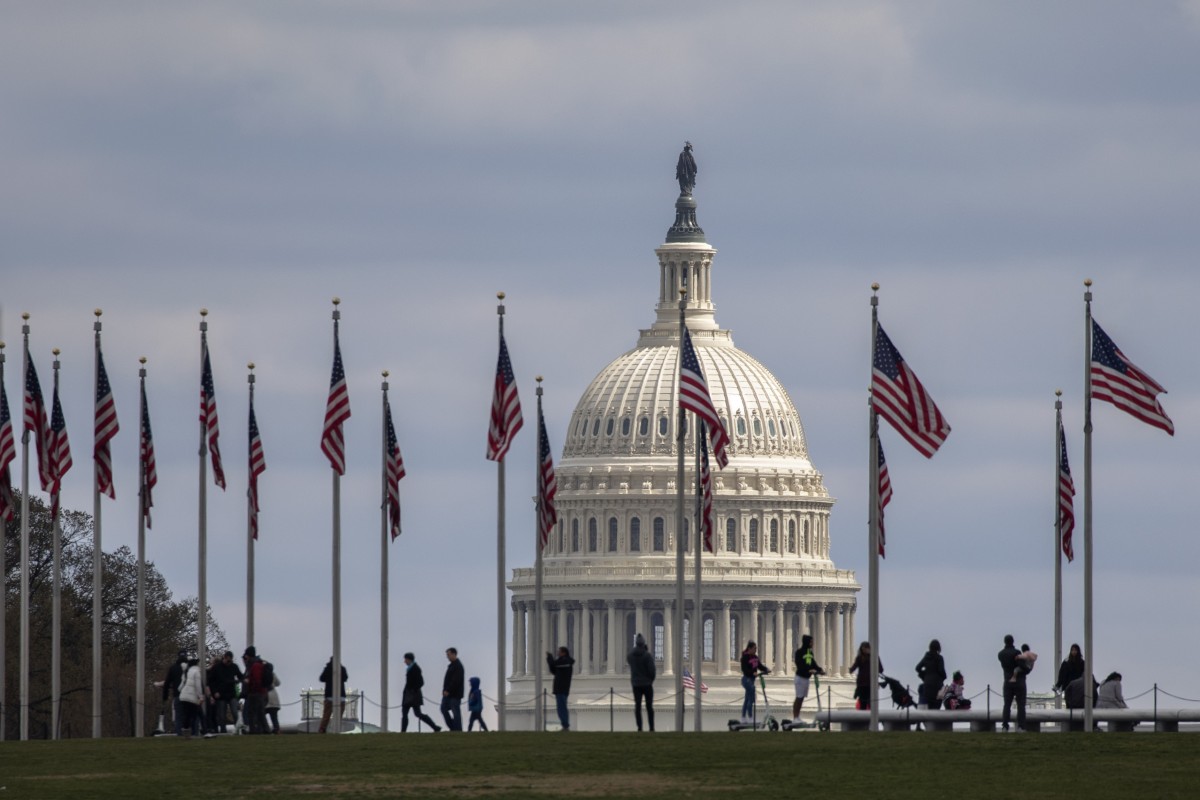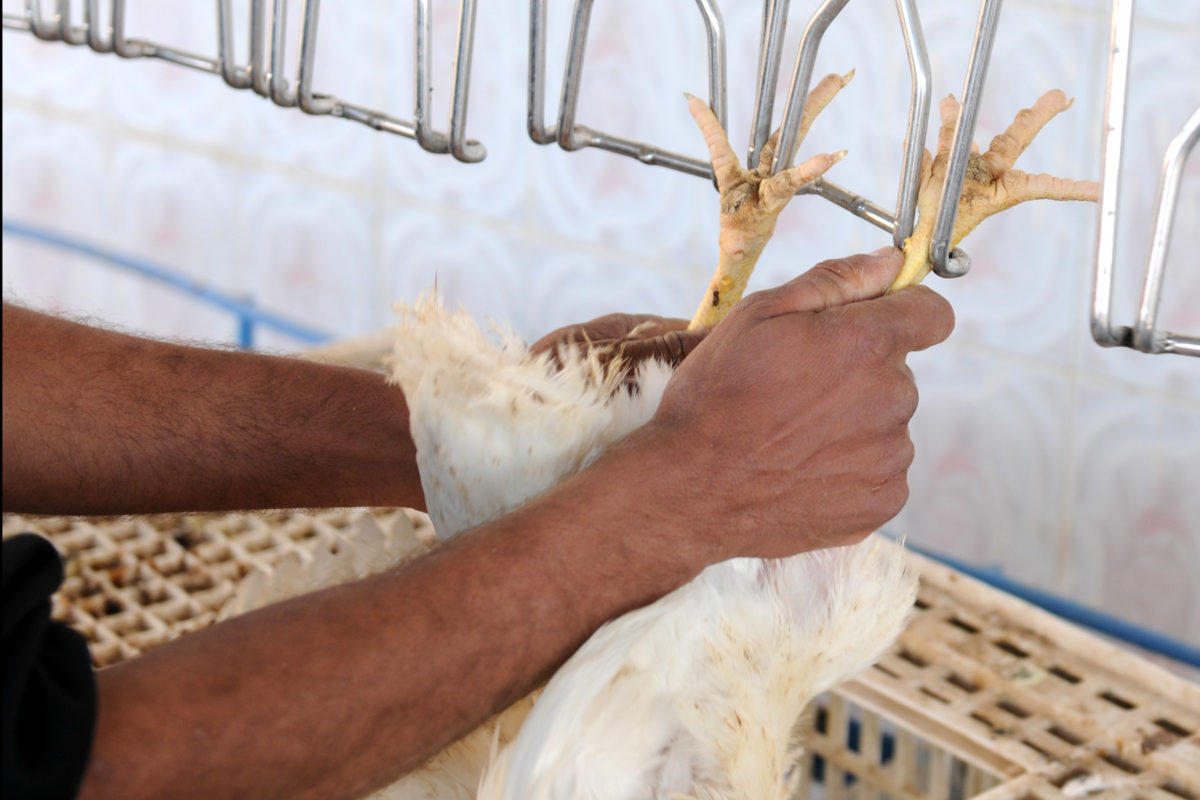The Saturday after millions of Americans received $1,200 economic relief checks from the federal government, Alex Corn decided to open the Verona Gun Safe early. He’s owned the Verona, Pennsylvania, gun shop on the outskirts of Pittsburgh since 2011.
Pennsylvania gun stores operate by appointment only, the result of a compromise to Gov. Tom Wolf’s order closing all businesses not defined as “life-sustaining,” meant to help slow the spread of COVID-19. As the federal relief funds filtered into bank accounts, Corn’s calendar of 30-minute appointments filled up, even though the store’s inventory has been depleted by six weeks of brisk sales.

As society abruptly transformed entirely in the face of the novel coronavirus pandemic and a partial societal shutdown meant to contain it, thousands of Americans responded by buying a gun. The FBI’s National Instant Criminal Background Check System processed 3.7 million checks in March, an increase from 2.6 million checks in March of 2019. Over the last five years, the NICB, a measure of how many people tried to buy a gun, usually processes about 2 million background checks a month.
Gun store owners say the influx is coming from first-time firearm buyers, fearful society could collapse into theft and marauding, as food and supplies run scarce, poverty deepens and police are rendered ineffective. Buyers are still filing into gun stores, which remain open in most Appalachian states, but first-timers don’t always have access to the ranges, gun clubs and classes to learn about their new lethal weapons. Some resort to tutorials on YouTube.
Gun sales have historically been impacted by current events. The number of background checks budged upward in early 2013, after the Sandy Hook school shooting stirred momentum for gun control, reaching 2.5 million checks that January.
Corn, whose store is about 20 miles up the Allegheny River from downtown Pittsburgh, says this sales surge is different. “Those were our usual customers,” he recalls. They wanted guns that might be banned in the near future. “Now, it’s first-time buyers looking for home protection.”
After a month of catering to this demand, a wall-length display at his store is mostly empty space. It usually contains more than a hundred handguns in stair-like tiers, but now holds just 15 and some dust. Above them, in the rifle display, stand a few high-priced models and plenty of hunting guns with scopes. The modest-priced shotguns best for shooting an intruder have been snapped up. Corn is relieved his suppliers came through with boxes of nine-millimeter bullets, the most common caliber. He sold out in March.

“I lost out on some $500 gun sales because I didn’t have a $20 box of ammo,” he says.
As the rest of Verona’s main street is shuttered, Eric Cartwright comes into the Verona Gun Safe hoping to buy a Kel-Tec SUB-2000 semi-automatic rifle. It would be his first gun.
“There’s multiple reasons I want it,” says Cartwright, 34. “Right now, I want to protect my family in case of martial law. I don’t want to leave my safety up to the government.” Cartwright wears a hoodie adorned with the logo of his heating and cooling business. He has vehicles and equipment that would be tempting targets if poverty drives people to theft, he said.
However, three DUIs complicate the process for Cartwright. Corn spends many of his work hours shepherding customers through the background check process, the reflection of a computer screen glowing in his thick eyeglasses. He advises Cartwright not to fill in the application; some questions about crimes can read like legalease and answering them incorrectly can halt the process (or even lead to criminal prosecution).
Cartwright, wearing a neatly trimmed beard and ponytail and carrying a vape pen, seems frustrated. His last DUI was 2009. “I’ve turned my life around,” he says. “I shouldn’t have to give up my Second Amendment rights.”
Corn moves on to his next appointment and Cartwright leaves with the business card of a local gun rights attorney. Many others are leaving gun shops with their first piece.
The Psychological Factor

Lanae Lumsden and her husband Gregory Winborne, of Avalon, Pennsylvania, another Pittsburgh suburb, drove to a sporting goods superstore in March and purchased a 20-gauge shotgun for $275 and a nine-millimeter handgun for $300.
“We had been thinking about it for a while,” said Lumsden, 40. The couple considered buying firearms in 2018 after neo-Nazis allegedly assaulted a black man at a bar in their town.
“We are black and live in the suburbs,” Lumsden said. “We felt more uncomfortable with [the coronavirus] happening. I felt like if something did happen, it would happen to us first.”
Winborne’s mother, a corrections officer, introduced him to guns. He and his wife shoot regularly with friends, but these are their first firearm purchases. The shotgun will stay at home and they intend to apply for concealed carry permits for the handgun. Right now, both sit in a bedroom drawer.
“We haven’t been able to shoot them,” says Winborne, 41. “We can’t even go to the range.”
In Pennsylvania, gun ranges on state lands are closed but ranges that are in private clubs are open at the discretion of their owners. Even if they could find a club, they try to stay at their house, mostly, working from home and caring for four kids, ages 5 to 18. But the guns are a comfort, Winborne said, as he envisions a worst-case scenario is a “zombie apocalypse, when people are just trying to take things for themselves.”

David Yamane, a professor of sociology at Wake Forest University in Winston-Salem, North Carolina, who studies gun culture, said first-time buyers are often purchasing some peace of mind, due to a personal trauma or fears about their neighborhoods or society. “I think the intended purpose of the purchase is physical security and they are also attempting to buy some psychological security,” he said.
While people are flooded with anxiety right now— over their health, their jobs, their savings— the gun allows them to put down the worry they’ll be defenseless against desperate hordes.
“It’s like the toilet paper,” said Yamane, a commodity shoppers stockpiled in March. “If they can’t have anything else until control, they know they have that one thing under control.”
These anxieties might be exaggerated. Arrests and calls for police service have decreased in some U.S. cities amid the coronavirus lockdowns, as depopulated streets leave fewer opportunities for muggings and crimes of opportunity. The Pittsburgh Bureau of Police reported a 3.5-percent dip in the first three months of 2020, compared to 2019. Still, some people still fret that a criminal will come to strong-arm them.
“People have supplies but unless they can defend them, they are only storing them for the next-most aggressive guy in their neighborhood,” said Josh Rowe, co-owner of Allegheny Arms and Gun Works, located in Pittsburgh’s southern suburbs. “That’s what we’ve heard.”
His store has also seen an uptick in sales from first-time buyers. They come in with nightmare predictions: Police forces will be neutered, as their ranks are depleted because of officers sick with the virus, or police will cease patrolling to avoid catching it. Former inmates will flood out, as authorities decrease populations in jails and prisons, and they will fall into gleeful recidivism. Opioid addicts will descend into desperation and break into homes to steal something to sell to get a fix.
“It’s first-time buyers and they realize they need to take responsibility for me and mine,” said Rowe. “These are not ‘gun nuts.’ That’s not who we are seeing. It’s a good cross section of people.”
First-Time Buyers and the Elusive 9 Millimeter
Chuck Bodner, of Bucks County, Pennsylvania, waited eight hours in line outside a gun store called The Bunker that was only accepting two customers at a time due to coronavirus precautions. After a day spent, his background check stalled. Two days later, a shop employee called and said he was clear. He returned and purchased a nine-millimeter pistol that now sits in a drawer in his house, its clip loaded but out.
“This coronavirus thing has spurred anxiety for me,” said Bodner, a 34-year-old self-described “leftist” who works in digital marketing, “fear of the unknown. What if this goes on for months?”
“I grew up poor and I am aware of how desperate poverty makes people,” he adds.
Bodner says he has shot guns with friends and “isn’t freaked out by them,” but he doesn’t know quite how to handle his new weapon. “I would like to get proper training. I would like to get a concealed carry [permit]. I would like to get more practice at a range. I practice the pistol grip. I watch a lot of YouTube videos.”
Rowe, co-owner of Allegheny Arms and Gun Works, says that he tries to guide first-timers to classes but many are not meeting, cancelled like everything else because of coronavirus.

With the store swamped in March and limited to 30-minute appointments in April, he hasn’t been able to have as much time as he’d like to speak to first-time buyers about instructions, safe storage and buying the gun most sensible to their needs and abilities.
“At the end of the day, gun stores are in business to sell guns, but I want to get the correct gun to customers,” said Rowe. He added that he’s turned away people who don’t seem to have thought through safety considerations.
Austin B., a recent first-time gun buyer in Louisville, Kentucky, is also struggling with the new, ever-shifting societal paradigm.
In March, the 40-year-old husband and father bought a M&P Shield 2.0 pistol, his first gun, due to fears coronavirus could lead to increased crime. “We live in a lower-income neighborhood that has a bit of a drug problem,” he said. “With incomes being suppressed, I’d hate for there to be a rise in burglaries.”
He asked to use only his last initial for this story because he fears someone may “swat” him (make false reports of a dangerous armed person to elicit a heavy police response) due to his gun ownership.
“I’m actually pretty embarrassed about how little research I did on the subject,” he said. “I think I basically googled ‘reddit good pistol for conceal carry’ the night before I bought it and it was a popular reply.” Because Kentucky does not require a license to carry a concealed gun he’s been wearing it to work, trying out different holsters to see which “feels” right.
But it’s not loaded. He can’t find nine-millimeter bullets. Kentucky is the only Appalachian state that has not seen an increase in background checks related to gun sales amidst COVID-19, possibly because the state already had a high gun ownership rate. But people have been snatching up bullets, Austin has found, which means he can’t go to a range to train with it.
“I think I’m going out to some land my cousin owns this weekend to put some rounds through it,” he said. He hopes his cousin has some nine-millimeters to spare.



